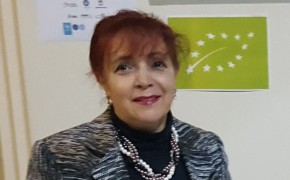8xS3 = Intelligent Romania is a project funded through the Operational Programme Administrative Capacity 2014-2020.
The project was initiated by the three largest and most active clusters in the North-West Region supporting the formulation of alternative public policies that would support innovation and competitiveness at the regional and national level. The alternative policies are targeting three different areas, corresponding to priority fields of specialization at the regional level: Digitalization – IT sector, SMEs internationalization – by the furniture industry, alternative public procurement – by the agro-food industry.
The novelty of the project refers to 1) the initiators of the alternative public policies formulation were three active clusters that represent three flagship industries at the regional level (included in RIS3), and 2) the proposal of three alternative policies in three different industries, distinguishing between each industry’s specificities. As such, the project consisted of a long analysis and consultation stage throughout the region, involving all types of stakeholders and territories, with the support of a team of experts in competitiveness and public policies. This stage (analysis, consultations and experts work) resulted in three main challenges – digitalization, internationalization and public procurement, that the clusters’ team transformed into alternative policies and concrete examples of measures to be implemented in a second stage of the project.
Resources needed
Cluster Management teams, budget – approximately 200,000 EUR
Evidence of success
1) Digitalization – the policy refers to a consolidation of digitalization efforts of various sectors in Romania through adequate legislation. The three main areas targeted are education, digital public services, SMEs’ digitalization.
2) Internationalization – the policy aims to increase SMEs participation to export.
3) Public procurement – the policy aims to change the legislation in order to increase the consumption of certified agro-food products as a way to promote a balanced diet.
Difficulties encountered
Changing legislation in a bottom-up process is a difficult initiative – it requires a solid argumentation and lobby, especially in a centralized country. Also, it is a process that requires constant effort and allocation of resources in order to obtain visible and sustainable results.
Potential for learning or transfer
The main lesson to be learned from this project is that cooperation and dialogue can make a difference – the project was developed from the start as a bottom-up initiative, based on consultation and dialogue, and was thought as a set-up for other regions to follow and adapt the process of elaboration of alternative public policies tailored to regional needs. Therefore, the main potential for transfer refers to the identification of promoters that understand well regional needs, identification of stakeholders that are willing to play an active role, and of experts that can help shape legislation according to regional needs.
Tags: Competitiveness, Development, Regional








